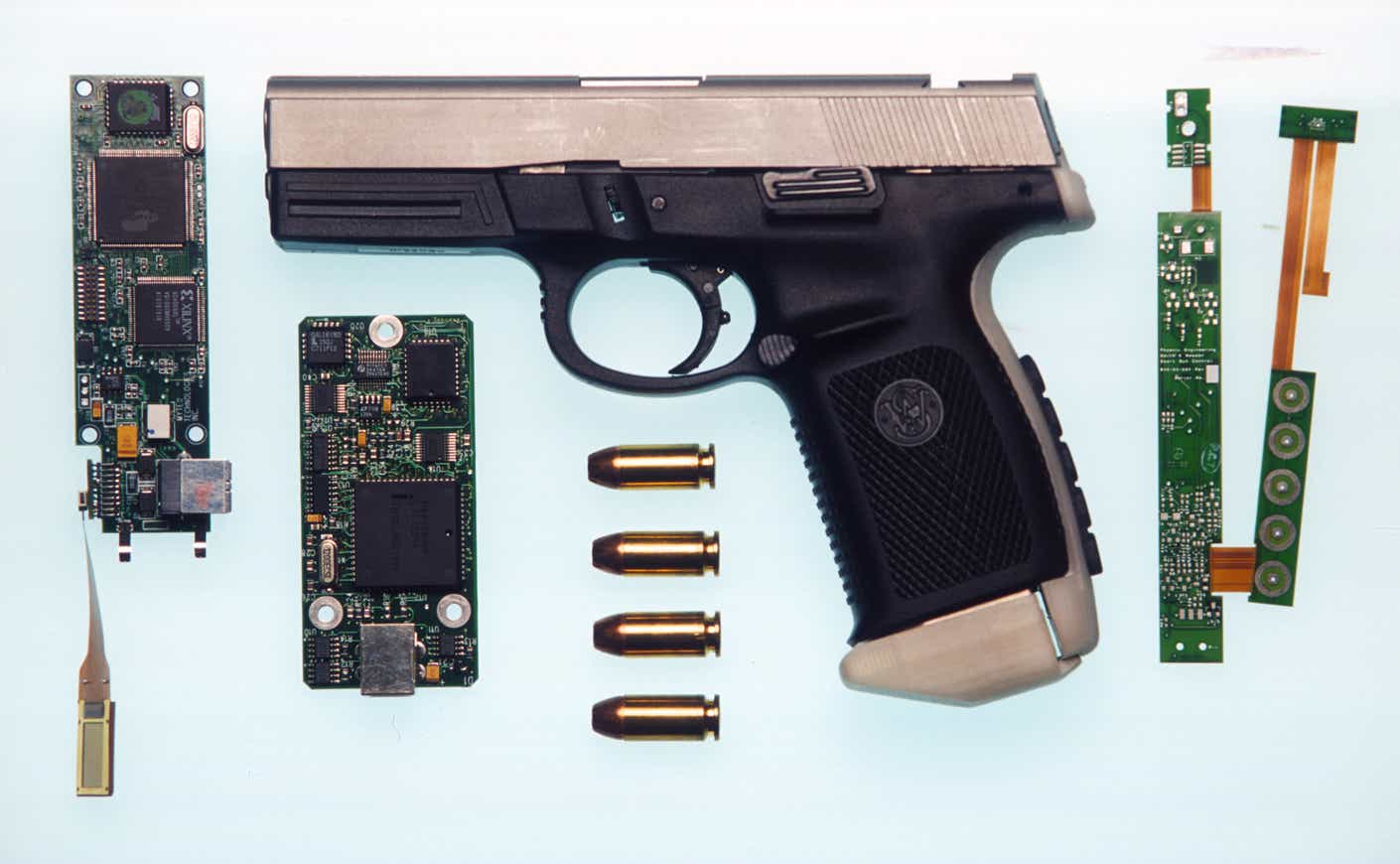For years, gun safety advocates have been pushing to bring the next generation of firearms to the market, believing it can help save young lives and dramatically reduce the number of gun deaths. But the gun lobby has fought bitterly against it. Now, after decades of debate, “so-called” smart guns may finally be hitting shelves.
In January, LodeStar Works, a Pennsylvania-based company, revealed its 9mm smart handgun to investors. The company tells NBC that the pistol will sell for around $900. Another manufacturer, SmartGunz, also announced last year that its firearm would be available for pre-order, retailing at $2,995. Here's what you need to know about the technology:
How do smart guns work?
Smart guns are designed so that they can only be fired by authorized users. The hope is the added security measure will prevent children from using the weapons, reduce the number of suicides, and keep criminals from using stolen guns.
There are two main ways smart guns verify users, per the Giffords Law Center. One is the use of radio frequency identification (RFID) tokens. These are wearable devices like watches, rings, bracelets, or gloves that when in proximity to the firearm, allow it to be fired. The other is biometric recognition technology, which verifies a user’s identity through a fingerprint, palm print, or grip.
LodeStar’s pistol can also be unlocked using a pin pan code or a smartphone app that can be paired via Bluetooth.
“The technology can work, and we’re making it work,” LodeStar CEO Gareth Glaser tells NBC. “Our authentication methods are reliable, they lock and unlock the firearm, and it shoots.”
Why haven't smart guns hit stores already?
Smart guns have been debated in the U.S. for years. Former President Barack Obama tried to advance the technology back in 2016, but he faced resistance from firearm groups, which have raised concerns about the reliability of the technology. (In 2017, a German-made smart gun was pulled from stores after it was discovered it could be hacked with magnets.)
A New Jersey bill passed in 2002 also spooked the NRA. That piece of legislation stipulated that once smart guns hit the market in the U.S., gun dealers in the state would be required to take all other firearms off their shelves within three years. Fearing the law could spread to other states, the NRA urged its members to protest. (A 2019 law replacing the 2002 bill would require all gun dealers to offer smart guns, but wouldn’t ban the sale of other firearms.)
The NRA also led a boycott of Smith & Wesson, which nearly put the iconic gun manufacturer out of business, after the company agreed to pursue smart-gun technology.









